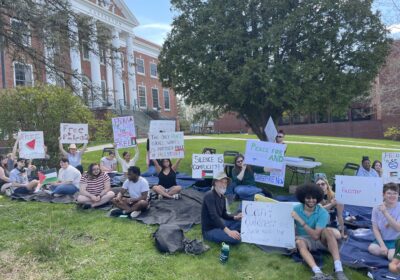Black history month: Do you know about their contributions?
Black History Month is a month that honors Black icons for their actions and moments they are most known for in history. We all can look back into Black history and see the impact that these figures had on American society and how they shaped our culture today.
While there are many people in Black history that you are probably familiar with, there may be some you may not know.
Aretha Franklin – Writer of the song “Respect,” which was considered the anthem of the Civil Rights Movement. Franklin was an avid activist and aid to the cause of seeking equal rights. Franklin was noted for hosting free concerts, aiding fundraisers and providing housing for other activists.
Booker T. Washington -. Booker T. Washington is the founder of the now named Tuskegee University in 1881, and was the advisor of Presidents Roosevelt and Taft. Washington is also renowned for being considered the most influential African American speaker of his time.
Carter G. Woodson – Woodson was considered “The Father of Black History” and had contributed to fighting for the right of Black people to know the history of their people. Woodson was an author, editor, publisher and historian who also founded Negro History Week, which was the precursor celebration to Black History Month.
Eartha Kitt – Kitt was a mixed-race actress and singer during the 1960’s and was notorious for her otherworldly singing voice and her intense sex appeal. Kitt made her mark at a White House luncheon in 1968 after she openly expressed her concerns for the troops in Vietnam, asking President Johnson about the condition of the young soldiers at the frontlines. When she was brushed off, Kitt went on to an open outburst in front of many, including Johnson’s wife Lady Bird. Kitt was immediately blacklisted by Johnson for her commentary after she left the luncheon.
Emmett Till – Many are familiar with the brutal lynching that took this young boy’s life after he was accused of flirting with a young caucasian woman. His story was one of many that had shed light on segregation laws and the Civil Rights Movement.
Louis Armstrong – Armstrong was a popular musician that many know today for his musical work, including the classic tune “What A Wonderful World.” His mark in Black History goes well beyond his musical genius and melodious voice. Armstrong had made history by being the first Black person to stay in the Dakota Hotel, which was formally a primarily caucasian welcoming establishment. He also was interviewed on his viewpoint on the Little Point School matters and the way Eisenhower dealt with the issue. Armstrong was quoted saying that Eisenhower was “two faced” and “had no guts”, as well as “it’s getting so bad a colored man hasn’t got a country.”
Phillis Wheatley – A literate and poetic woman, Wheatley was an enslaved woman who was a New England and England celebrity. Wheatley was used in her time as a propaganda tool for antislavery movement in the 19th Century.
Ruby Bridges – The first young Black student to emigrate to an elementary school during the time of segregation in the South. She was one of five children to partake in this event, as well as pass an entry exam that was provided to all Black students to test their learning abilities.








